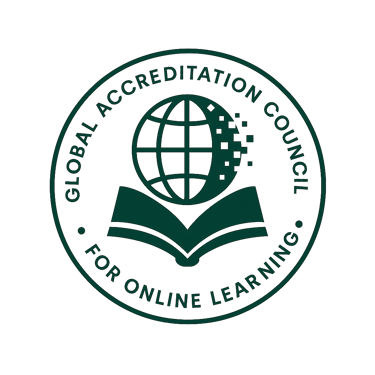RESOURCES
Overview
The Global Accreditation Council for Online Learning (GACOL) is more than an accreditation body — it is a hub of global research, knowledge exchange, and policy development in digital higher education.
Through our resources, we aim to support universities, policymakers, and educators in building stronger, more transparent, and future-ready online learning systems.
All documents listed here are available for free public download and may be cited with attribution to GACOL.
Publications & Guidelines
Our official publications define and update the international standards used in evaluating online universities.
GACOL Quality Assurance Handbook: The complete reference framework for institutional and program-level accreditation.
Evaluator’s Manual (E-Edition): Internal guideline for audit teams conducting remote and onsite evaluations.
Institutional Self-Assessment Template (SAR Form): A step-by-step reporting template used by universities applying for accreditation.
Code of Ethics & Integrity Policy: Ethical framework for GACOL evaluators and accredited institutions.
Standards for Online Pedagogy & Digital Assessment: Research-based standards defining student engagement, assessment reliability, and learning outcomes in online programs.
Annual Report on Global Online Education Quality (GQ2025): Yearly publication summarizing trends, new accreditations, and data insights from GACOL’s global operations.
Research Library
GACOL’s Research Division collaborates with independent scholars to publish peer-reviewed studies on the evolving landscape of online education.
Recent topics include:
Artificial Intelligence in Academic Integrity and Student Evaluation
Comparative Study of Virtual Learning Environments (2025 Global Survey)
Accessibility and Inclusion in Online Higher Education
The Future of Credential Verification: Blockchain and AI Authentication
Institutional Leadership in Post-Digital Universities
Each study is available in PDF and HTML formats for download, citation, or academic reference.
Policy Papers
These documents provide thought leadership and recommendations for governments and university networks:
Guidelines for Cross-Border Recognition of Online Degrees
Ethical Framework for AI-Driven Learning Systems
Accreditation Models for Emerging Digital Universities
Best Practices in Virtual Academic Governance
News & Updates
Stay informed with GACOL’s periodic news releases:
Newly accredited institutions
Accreditation renewals and recognitions
International conferences and training events
Updates to GACOL standards and methodologies
All news items are archived by year for public reference.
Partner Organizations
GACOL maintains collaborative relationships with:
International education research networks
Independent quality-assurance bodies
Digital learning technology associations
Open education initiatives and global university alliances
Partnerships are non-exclusive and based on shared commitment to academic integrity and online learning excellence.
Media & Downloads
Official Logo & Seal Usage Guidelines (PDF)
Press Kit (Branding materials and approved statements)
Accreditation Seal Vector (for verified institutions only)
Official Presentation Slides and Infographics
Sample Certificate & Verification Poster
Annual Symposium
Every year, GACOL hosts an international Symposium on Digital Higher Education Quality — an online conference featuring universities, ministries, and accreditation specialists.
The event promotes global dialogue on innovation, ethics, and technology in higher learning.
Interested institutions may register through the Events Portal on this page.
Citation & Reuse Policy
All GACOL publications are released under an open-access model (Creative Commons BY-NC 4.0).
Users may copy, distribute, or adapt the material for non-commercial purposes with proper attribution to GACOL – Global Accreditation Council for Online Learning.
Accreditation is not a barrier — it is a bridge toward international recognition and academic trust.
© 2025 Global Accreditation Council for Online Learning (GACOL). All rights reserved.
